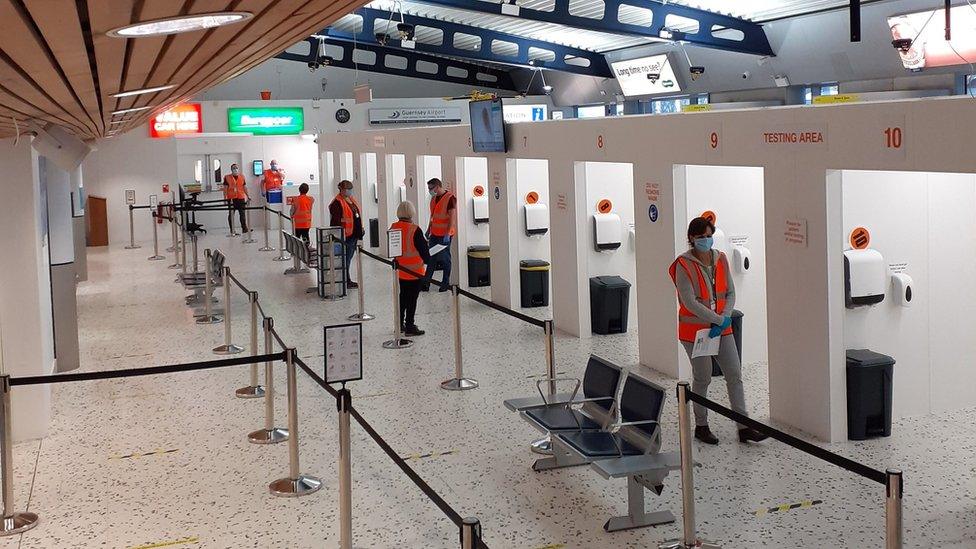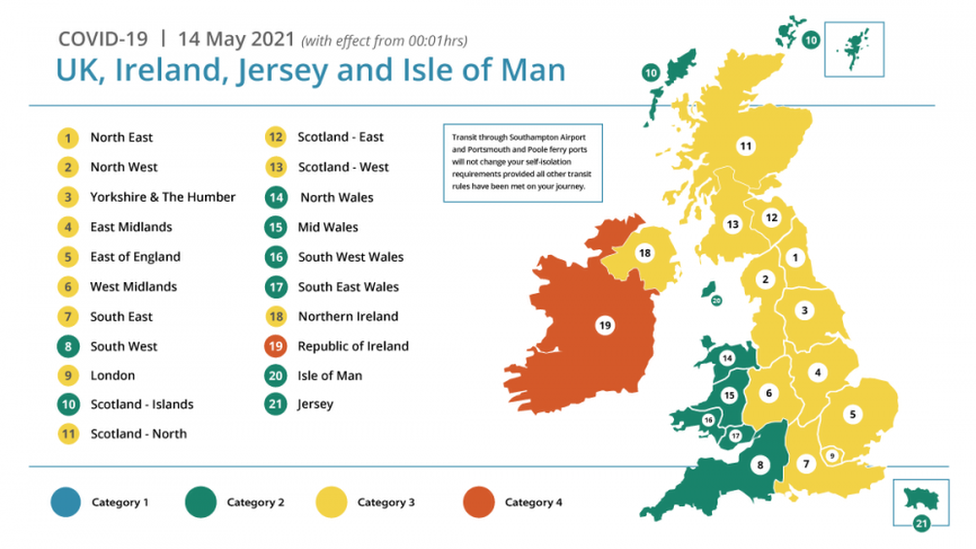Covid-19: Next phase of Guernsey border relaxation introduced
- Published

Border testing will remain in place for all arrivals
The next phase of relaxing border controls has been introduced by the States of Guernsey.
Eight regions of the common travel area are in category two, meaning visitors only need to self-isolate until getting a negative test on arrival.
Those from all other UK areas including London and the south east still need to self-isolate for a week and test negative twice.
The four tier system is based on infection rates.
Tier two areas must have a sustained Covid-19 rate of below 30 per 100,000 people for 14 consecutive days.
The States use a 14-day rate for infections, external in line with European Centre for Disease Control guidelines, rather than the seven day rate used by Public Health England.
This means people coming from most of England, Scotland and Northern Ireland remain in category three, meaning they must still self-isolate for a week and test negative twice, with infections rates between 30 and 120 per 100,000.

Map of the travel categories of the British Isles areas according to 14 day Covid-19 infection rate
Those arriving from the south west of England, Wales and the islands of Scotland fall into the tier two, alongside people coming from the Isle of Man and Jersey.
However the States has clarified people from category two areas flying to the island through Southampton or taking the ferry from Poole or Portsmouth will not be placed in category three.

Chelsea Ward was due to visit her father in Guernsey but has cancelled her plans
Some people have expressed frustration and confusion with the 14-day system.
Chelsea Ward, who lives in Stirling, Scotland, with a seven day infection rate of 13.8 per 100,000, was due to visit her father in Guernsey on Friday for the first time in more than a year for his birthday.
She said "because they're reporting differently I've had to cancel my plans."
The 14-day rate for West Scotland, including Stirling, is 53.3.
The States are analysing the rates and adjusting the tiers accordingly every Monday, Wednesday and Friday.
Chair of Guernsey's Civil Contingencies Authority Peter Ferbrache emphasised the lack of Guernsey's internal restrictions meant the States would not "take any unnecessary risks" over travel.
He said: "It's because the prevalence rates [in the UK] have not come down as quickly as we hoped that those regions carry more risk."

Follow BBC Guernsey on Twitter, external and Facebook, external. Send your story ideas to channel.islands@bbc.co.uk, external.
Related topics
- Published23 April 2021
